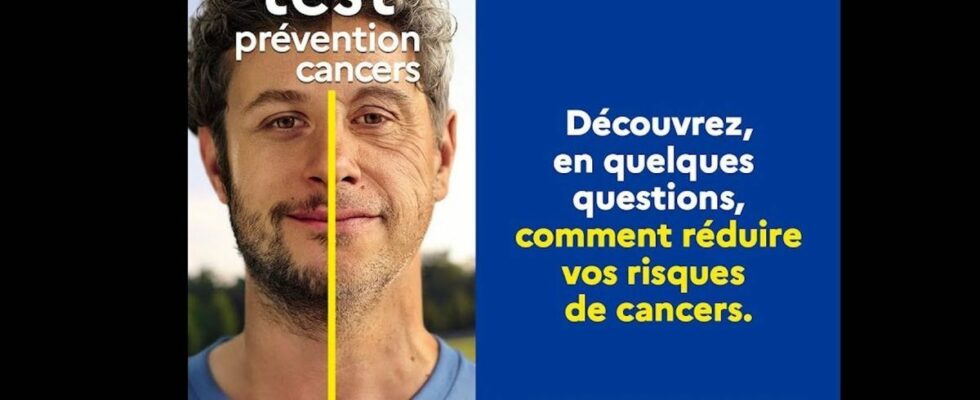Published on
updated on
Reading 3 min.
Would you be able to assess your exposure to cancer risks? The French National Cancer Institute (INCa) has just launched a new tool to help you. It is called “My Cancer Prevention Test”, an interactive online test designed to raise awareness among the French about the avoidable risks linked to their lifestyle.
Available since August 19, 2024, this new tool helps reduce exposure to risk factors such as tobacco, alcohol, diet and physical activity. Through a series of questions, this test offers personalized recommendations to improve your lifestyle habits and reduce your risk of developing cancer.
An interactive method for active prevention
The originality of this test lies in its interactive approach. Accessible free of charge to all, “My Cancer Prevention Test” was designed to make prevention more fun. Users are invited to answer around thirty questions about their lifestyle, covering topics such as diet, physical activity, alcohol and tobacco consumption, as well as UV exposure. Depending on the answers, the user can identify the daily behaviors that expose them to avoidable cancer risk factors. They then benefit from personalized advice and receive, at the end of the test, a report on targeted actions to implement.
A major public health issue
The goal is clear: to raise awareness of avoidable risks, which are the cause of 40% of cancers in France. With more than 433,100 new cases diagnosed each year, cancer remains one of the leading causes of death in the country. However, effective prevention could significantly reduce this figure.
By making prevention more accessible and personalizing recommendations, INCA hopes to encourage more people to adopt a healthier lifestyle.
Instant results and an educational experience
In less than 10 minutes, users receive a personalized assessment. The experience is intended to be not only informative, but also educational. Each response is accompanied by educational content explaining the links between daily behaviors and cancer risk. For example, a person who has reported regular alcohol consumption will receive advice on ways to reduce this consumption and the expected benefits for their health.
In addition, the test encourages the establishment of realistic and progressive objectives, making the recommendations more achievable. By focusing on interactivity and personalization, this test aims to renew the approach to prevention in public health and improve the quality of life of many French people.
These behaviors promote the prevention of avoidable cancers
Do not smoke or start quitting smoking
- Tobacco is the number one preventable risk factor for cancer;
- More than 8 out of 10 lung cancers are linked to tobacco use;
- It is not the quantity of cigarettes smoked that is most dangerous, but the duration of exposure to this risk factor;
- A smoker has a 70% chance of quitting if he receives help from a health professional.
Reduce your alcohol consumption
- Alcohol is the 2nd preventable risk factor for cancer;
- It is involved in the development of 8 different cancers (breast, colon and rectum, mouth, pharynx, stomach, liver, esophagus);
- It is recommended not to exceed 2 glasses per day and not every day.
Have a balanced and varied diet
- Unbalanced diet and excess weight each cause 19,000 new cases of cancer per year in France;
- It is recommended to eat at least 5 portions of fruit and vegetables per day and to limit your consumption of red meat, cold cuts and ultra-processed products.
Have regular physical activity
- Nearly 3,000 new cases of cancer per year are due to a lack of physical activity;
- It is recommended to practice at least 30 minutes of dynamic physical activity per day;
- Physical activity includes all movements carried out in daily life, at work and at home.
Protect yourself from the sun
- Every year, more than 100,000 new cases of skin cancer are detected;
- Tanning booths are just as dangerous as the sun;
- It is imperative to protect children in particular: childhood sunburn causes skin cancer in adults.

